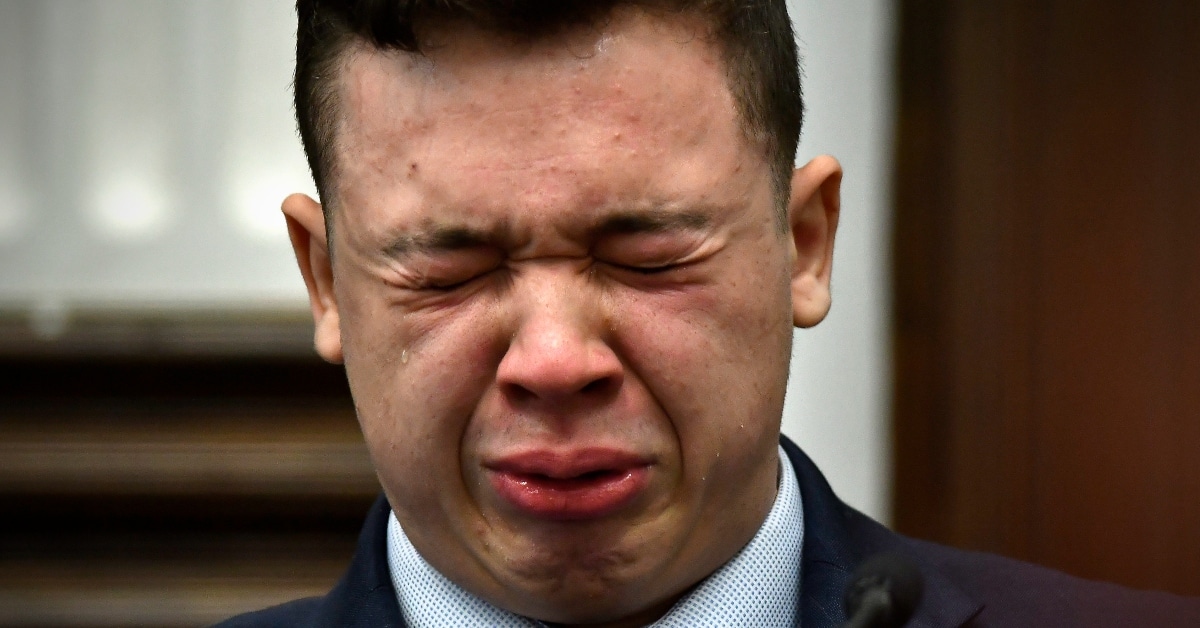OPINION: This article may contain commentary which reflects the author's opinion.
Legal experts sounded off on the potential that Joe Biden’s Justice Department could file civil rights lawsuits against Kyle Rittenhouse, who was recently acquitted of two counts of murder and other felonies related to shootings in Kenosha, Wis., last year during riots.
Last week a jury found Rittenhouse not guilty for killing Joseph Rosenbaum, 36, Anthony Huber, 28, and wounding Gaige Greusskruetz as they alternately chased, threatened, and struck the teen, finding that he acted in self-defense.
But there has been speculation that civil lawsuits and other cases could be filed against Rittenhouse, though experts don’t think that most of them would be successful, per the Washington Examiner:
The verdict prompted a condemning response from the likes of House Judiciary Committee Chairman Jerry Nadler, who tweeted Nov. 19 that the full acquittal was a “miscarriage of justice” that “justifies federal review” by the Department of Justice . However, legal analyst and Cornell Law School professor William Jacobson told the Washington Examiner the self-defense evidence in Rittenhouse’s criminal case “will be just as overwhelming in a civil case.”
You’re not going to be having fun in Congress after the 2022 election. Enjoy your authoritarian attacks now because the pendulum is about to swing.
— Robby Starbuck (@robbystarbuck) November 19, 2021
“There is no obvious basis for a civil rights prosecution against Rittenhouse,” said Jacobson, also the founder of the Legal Insurrection blog who followed the trial daily.
“The videos are the videos, and the testimony already is under oath from witnesses and alleged victim Gaige Grosskreutz. A civil case will fail even by a preponderance of the evidence,” Jacobson added.
Separately, constitutional law professor Jonathan Turley wrote last week that the Justice Department does not have an office for the prosecution of “miscarriages of justice,” adding it would also be a “dangerous precedent” to investigate a jury’s decision just because DoJ officials may disagree with the trial’s outcome.
“Rittenhouse was acquitted on state charges by a state jury. Moreover, while some have called for reducing self-defense protections, the jury applied the law as it currently appears on the books,” Turley wrote in a Fox News piece. “It is not allowed to simply ignore the law to seek our own criminal justice rules.”
He added:
The Rittenhouse jury faithfully applied the Wisconsin law and came to a well-founded verdict of acquittal. It is a dangerous precedent to investigate jury decisions simply because you disagree with their decisions.
There is also no clear basis for a civil rights prosecution. Rittenhouse is White and shot three White men. He was not accused of a hate crime. Moreover, he is not a member of law enforcement or government agency, so he did not deprive anyone of their civil rights under federal law.
But what about civil liability? Turley notes that is not a guarantee either:
Rittenhouse could face lawsuits from the families of the deceased or from Gaige Grosskreutz, who survived being shot in the arm. That includes wrongful death actions much like the litigation against O.J. Simpson after he was acquitted for the killings of his ex-wife, Nicole Brown Simpson, and her friend Ronald Goldman. However, he was then found guilty in a torts lawsuit brought by the Goldman family and ordered to pay $33.5 million. Those damages later rose to $58 million.
The risk of such torts actions is that they proceed under a lower standard of proof. Rather than shouldering the “beyond a reasonable doubt” standard of the prosecution, the plaintiffs would have to only prove responsibility by a “preponderance of the evidence.” However, that is no guarantee of conviction.
“All three men attacked or threatened Rittenhouse before he used his weapon. The common law protects not just self-defense but mistaken self-defense where a person may have erroneously (but reasonably) thought that he was under attack,” Turley added.
Meanwhile, the Washington Examiner notes that University of California Hastings College of Law professor Rory Little believes the federal government will probably launch a probe to see if there is the potential of a criminal civil rights violation that occurred against the deceased parties.
“In a civil case, you can broaden the field,” Little said on Friday, adding that while such charges can be brought, they likely won’t because the burden of proof will be the same as in criminal court.
